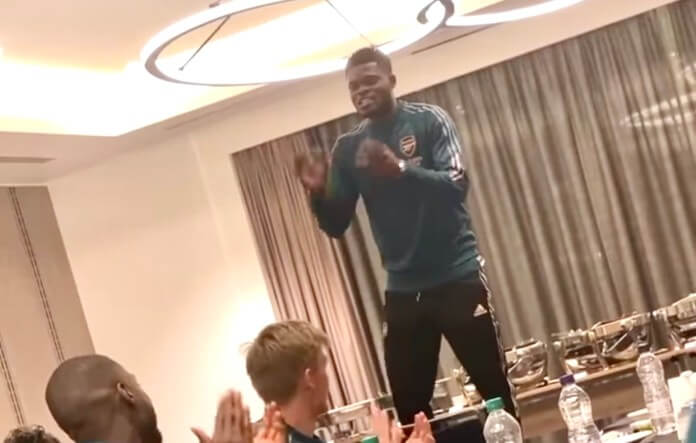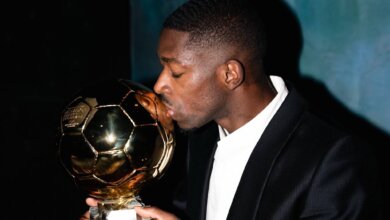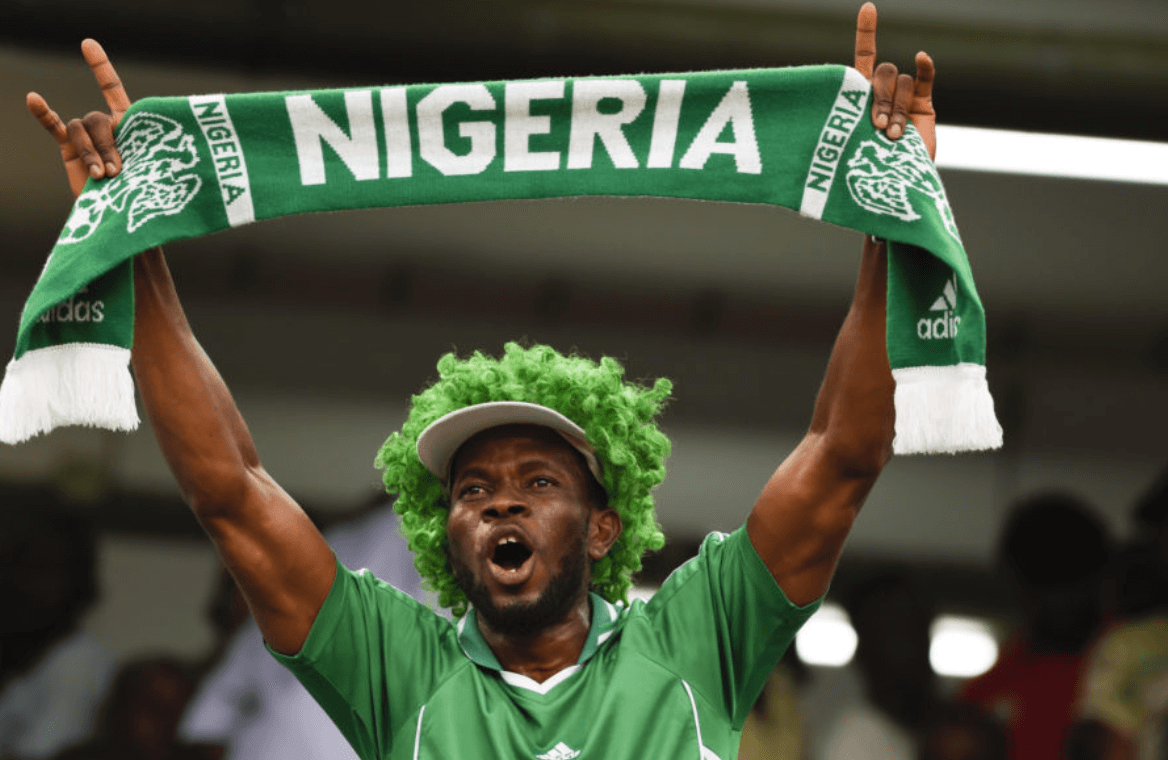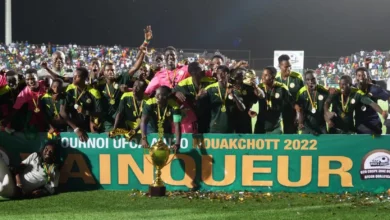Players of African-descent with Ballon d’Or
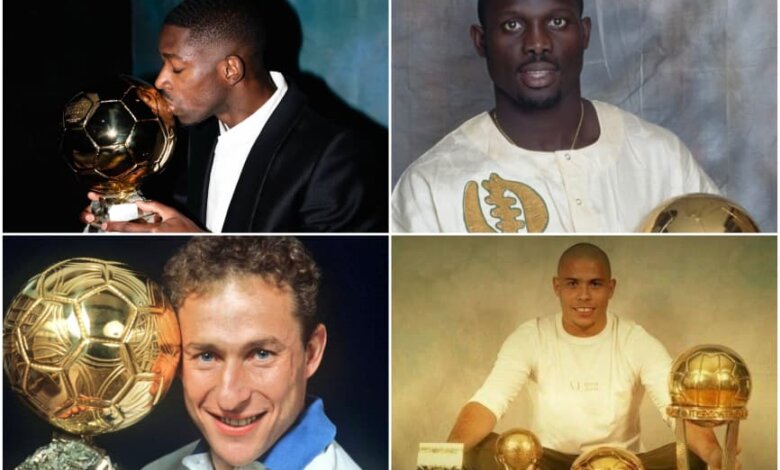
File Photo (from top left): Ousmane Dembélé, George Weah, Jean-Pierre Papin. and Ronaldo Luís Nazário de Lima
The Ballon d’Or, established in 1956 by France Football, initially recognized only European players with Argentina, France, Germany, the Netherlands, Portugal, Brazil, England, Spain, and the Soviet Union dominating the awards.
The award’s eligibility was later expanded in 1995 to include those of any nationality playing for European clubs, and later globally. This change paved the way for players of African descent to compete for the award. However, only a few players with African heritage have won, despite the continent’s growing influence in the sport.
African-born players like George Weah remain rare, with most winners of African descent, like Ousmane Dembélé, Ruud Gullit, and Ronaldo Luís Nazário de Lima, born in Europe or South America. Players like Nigeria’s Victor Osimhen, Egypt’s Mohamed Salah, and Senegal’s Sadio Mané have been perennial contenders for major awards, yet none have claimed the Ballon d’Or.
Below is a list of African-descent players that have won the Ballon d’Or:
1. Eusébio “Black Panther” (1965)
Eusébio da Silva Ferreira, born on January 25, 1942, in Lourenço Marques (now Maputo), Mozambique, then a Portuguese colony, won the Ballon d’Or in 1965 as the first player of African descent to claim the award. Playing for Benfica, Eusébio had an extraordinary 1964–65 season, scoring 46 goals in 41 matches across all competitions, including 28 goals in the Portuguese Primeira Liga, helping Benfica secure the league title.
His explosive pace, powerful shooting, and clinical finishing earned him the nickname “Black Panther.” Eusébio’s Ballon d’Or came during a golden era for Benfica, following their European Cup wins in 1961 and 1962, where he was a key figure.
As a Mozambican-born player representing Portugal, his victory was a landmark for African representation in European football, especially at a time when the Ballon d’Or was restricted to European players. Eusébio’s win highlighted the growing influence of African talent in Europe, paving the way for future generations.
2. Ruud Gullit (1987)
Ruud Gullit, born on September 1, 1962, in Amsterdam, Netherlands, to a Dutch mother and a Surinamese father, won the Ballon d’Or in 1987 while playing for AC Milan. A versatile midfielder who could also play as a forward, Gullit was instrumental in Milan’s resurgence, helping them win the Serie A title in the 1987–88 season after a stellar 1987 campaign.
During the 1986–87 season with PSV Eindhoven (before his Milan transfer), he scored 22 goals and provided numerous assists, showcasing his athleticism, vision, and leadership. His 1987 Ballon d’Or recognized his pivotal role in both club and international football, including captaining the Netherlands to the 1988 European Championship (post-award).
Gullit’s Surinamese heritage connected him to the African diaspora, and his win was a milestone for players of Afro-Caribbean descent in Europe. His all-around brilliance and charisma made him a global icon, influencing the modern attacking midfielder role.
3. Jean-Pierre Papin (1991)
Jean-Pierre Papin, born on November 5, 1963, in Boulogne-sur-Mer, France, with ancestral ties to Réunion Island, a French overseas territory with African heritage, won the Ballon d’Or in 1991 for his prolific performances with Olympique Marseille.
Papin scored 23 goals in Ligue 1 during the 1990–91 season and was a driving force in Marseille’s third consecutive French league title and their run to the European Cup final, where they lost to Red Star Belgrade on penalties. Known for his acrobatic volleys and clinical finishing, Papin’s goal-scoring prowess, 44 goals in all competitions, earned him the award over competitors like Lothar Matthäus.
As a player of partial African descent through his Réunionnais roots, Papin’s victory highlighted the diversity of French football and the contributions of players from France’s overseas territories. His Ballon d’Or win solidified Marseille’s status as a European powerhouse and marked a significant moment for African-descent players in the award’s history.
4. George Weah (1995)
George Weah, born on October 1, 1966, in Monrovia, Liberia, won the Ballon d’Or in 1995, becoming the first and only African-born player to claim the award. Playing for AC Milan after a successful stint at Paris Saint-Germain, Weah scored 11 goals and provided key assists in the 1994–95 Serie A season, helping Milan finish fourth and reach the Champions League quarter-finals.
His pace, strength, and flair were unmatched, and his leadership of Liberia’s national team, despite limited resources, added to his global appeal. The 1995 Ballon d’Or was the first year non-European players were eligible, making Weah’s win a historic breakthrough for African football. Weah’s later transition to politics, becoming Liberia’s president in 2018.
5. Ronaldo (1997, 2002)
Ronaldo Luís Nazário de Lima, born on September 18, 1976, in Rio de Janeiro, Brazil, of African descent, won the Ballon d’Or twice, in 1997 and 2002, for his extraordinary performances as a striker. In 1997, with Inter Milan (after a standout season at Barcelona), Ronaldo scored 34 goals in 47 matches across all competitions, including 25 in La Liga, helping Barcelona win the Copa del Rey and UEFA Cup Winners’ Cup.
His blistering speed, dribbling, and finishing earned him the nickname “O Fenômeno.” In 2002, now with Real Madrid, Ronaldo won again after scoring eight goals in Brazil’s World Cup triumph, including two in the final against Germany, and adding 23 goals in La Liga.
His African ancestry, common among Afro-Brazilians, connected him to the diaspora, and his two Ballon d’Or wins showcased his dominance as one of football’s greatest-ever forwards. Ronaldo’s global impact redefined the striker role and inspired countless players.
6. Ousmane Dembélé (2025)
Ousmane Dembélé, born on May 15, 1997, in Vernon, France, to a Malian mother and a Mauritanian father, won the 2025 Ballon d’Or, announced on October 27, 2025, at the Théâtre du Châtelet in Paris. During the 2024–25 season, Dembélé delivered 35 goals and 15 assists in 49 appearances for Paris Saint-Germain, playing as a false nine under Luis Enrique.
His performances were pivotal in PSG’s Ligue 1 title, Coupe de France victory, and their first UEFA Champions League trophy, with standout moments including a hat-trick in the Champions League semi-final against Bayern Munich and a goal in the final against Manchester City.
After overcoming injury setbacks at Barcelona (2017–2022), Dembélé’s 2023 move to PSG marked a career revival, leading to his Ballon d’Or triumph over finalists like Lamine Yamal. As a French player of Malian descent, Dembélé’s win, the first for an African-descent player since Ronaldo in 2002, underscores the continued influence of the African diaspora in European football.
Written by Abeeb Lekan Sodiq

Abeeb Lekan Sodiq is the Managing Editor of theafricandream.net, a pan-African news website subsidiary of US-based TheAfricanDream LLC. He is also a Human Resource Practitioner, and a freelance Graphics Designer. He has worked with prominent personalities, including ambassadors, secretariats, international organisations, universities, celebrities, NGO, and media firms.

